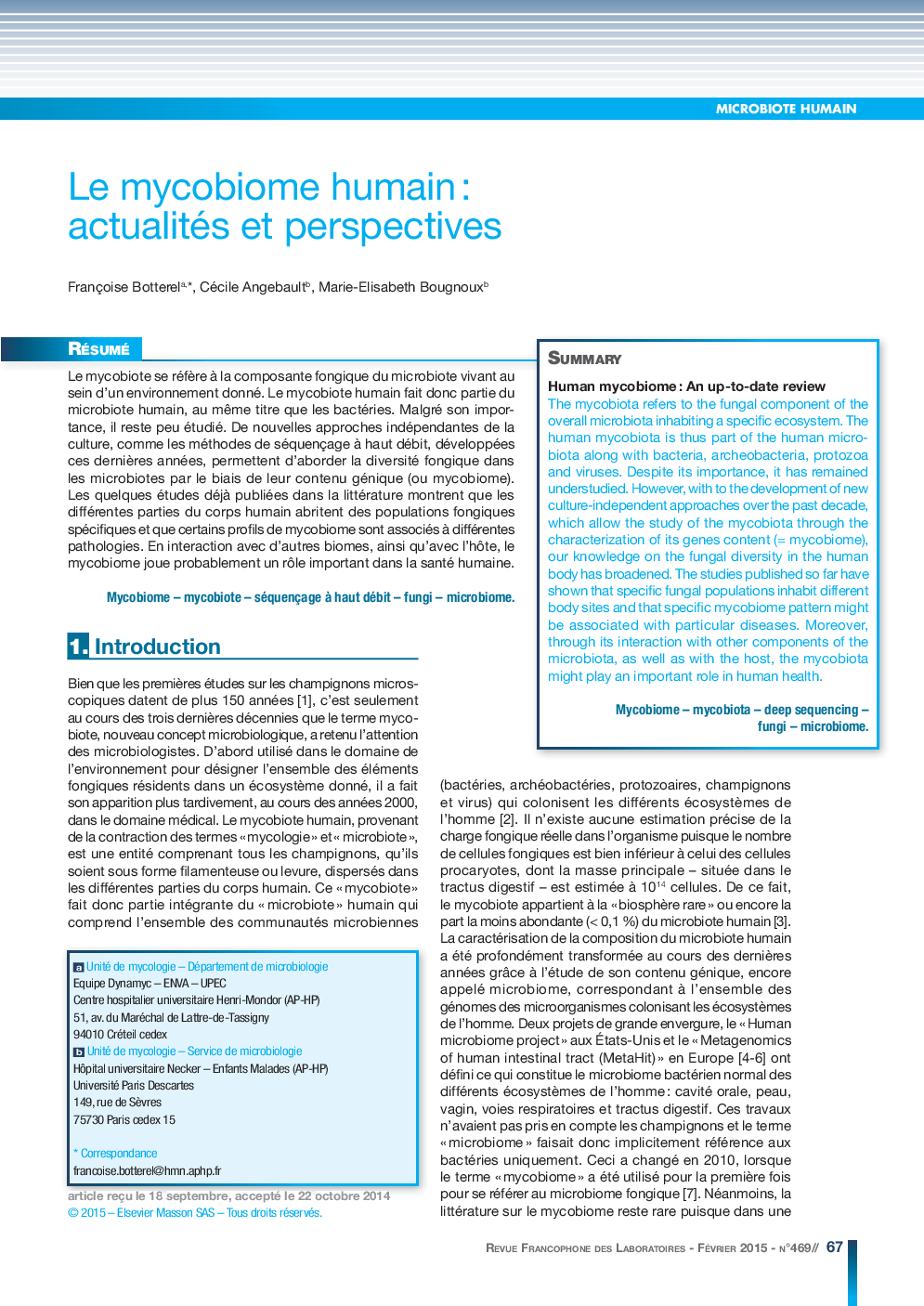| Article ID | Journal | Published Year | Pages | File Type |
|---|---|---|---|---|
| 7647662 | Revue Francophone des Laboratoires | 2015 | 7 Pages |
Abstract
The mycobiota refers to the fungal component of the overall microbiota inhabiting a specific ecosystem. The human mycobiota is thus part of the human microbiota along with bacteria, archeobacteria, protozoa and viruses. Despite its importance, it has remained understudied. However, with to the development of new culture-independent approaches over the past decade, which allow the study of the mycobiota through the characterization of its genes content (= mycobiome), our knowledge on the fungal diversity in the human body has broadened. The studies published so far have shown that specific fungal populations inhabit different body sites and that specific mycobiome pattern might be associated with particular diseases. Moreover, through its interaction with other components of the microbiota, as well as with the host, the mycobiota might play an important role in human health.
Related Topics
Physical Sciences and Engineering
Chemistry
Analytical Chemistry
Authors
Françoise Botterel, Cécile Angebault, Marie-Elisabeth Bougnoux,
